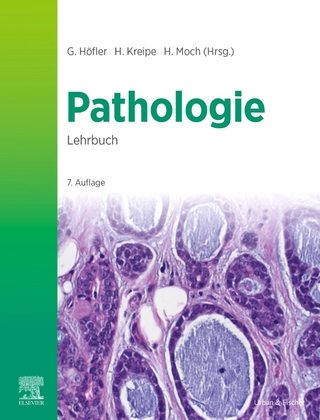
Neuroglia in Neurologic and Psychiatric Disorders
Elsevier - Health Sciences Division (Verlag)
978-0-443-19102-2 (ISBN)
- Noch nicht erschienen (ca. Juni 2025)
- Versandkostenfrei
- Auch auf Rechnung
- Artikel merken
Professor Alexei Verkhratsky, PhD, DSc, is an internationally recognised scholar in the field of cellular neurophysiology, best known for his contributions to our knowledge of the physiology and pathophysiology of neuroglia. He started glial research in 1989 in Heidelberg in the laboratory of Helmut Kettenmann. In a series of highly cited conceptual papers, he outlined basic principles of glial physiology and pathophysiology, which significantly influenced this rapidly developing area of neuroscience. Dr. de Witte is a psychiatrist with a background in preclinical research in the fields of virology and immunology. She is an MD PhD interested in how the immune system plays a role in psychotic disorders. In parallel to her residencies in psychiatry, she started her own research group at the Brain Center Rudolf Magnus in Utrecht, the Netherlands investigating the prevalence and role of neuronal auto-antibodies and neurotropic pathogens in psychotic disorders. He research has resulted in a novel and distinctive research line studying the phenotype and function of microglia in psychotic disorders. Prof. E.M.A. Aronica is professor of Neuropathology at the University of Amsterdam’s Faculty of Medicine (AMC-UvA). Her research focuses on understanding the pathogenesis, epileptogenesis and pharmacoresistance of focal chronic pharmacoresistant epilepsy, as well as featuring translational aspects. The aim is to find an effective treatment for patients with epilepsy by mapping biological and molecular signalling pathways that contribute towards the development and progression of epilepsy and associated comorbidity. Aronica studies the control mechanisms of inflammatory processes, microRNAs, biomarkers to predict and diagnose the development of disease. Aronica focuses on neuropathological and applied research for patients with neurological diseases. She has published more than 300 peer-reviewed articles and several chapters for books. Elly Hol is professor of “Glia biology of brain diseases at the Utrecht University and professor of "Biology of glia and neural stem cells at the University of Amsterdam. Her research is focused on the role of glial cells in brain diseases, including Alzheimer’s disease, stroke, schizophrenia and glioma. The overall aim is to elucidate the molecular and functional changes in glia that contribute to the pathogenesis of neurological and psychiatric diseases. Her work is translational and includes studies on glial cells in human post-mortem brain tissue, in human cell models, and in mouse models for brain diseases. She is a member of Academia Europaea, member of the editorial board of Glia, chair of the scientific advisory board of Alzheimer Nederland, chair of GliaNed, director of the Neuroscience Master and PhD program of the Utrecht University Graduate School of Life Sciences, and director of education for the Division Brain at the UMCU.
Part I. Glia in neurological disorders 1. General pathophysiology of neuroglia 2. Glia in neurodegeneration: Alzheimer’s, Parkinson’s and Huntington’s disease 3. Glia in neurodegeneration: amyotrophic lateral sclerosis and frontotemporal dementia 4. Glia in epilepsy 5. Glial cell pathology in genetic and epigenetic disorders of the central nervous system 6. Glia in stroke/cerebrovascular disease 7. Unravelling the complexity of microglial responses in traumatic brain and spinal cord injury 8. Astrocytes and microglia in multiple sclerosis and neuromyelitis optica 9. Glia in autoimmune encephalitis 10. Glia in leukodystrophies 11. Reciprocal interactions between glioma and tissue-resident cells fueling tumor progression 12. Neuroglia in hepatic encephalopathy 13. Infectious diseases (including COVID-19) 14. Physiology and pathophysiology of the retinal neuroglia Part II. Glia in psychiatric disorders 15. From womb to world: the interplay between maternal immune activation, glia and neurodevelopment 16. Neuroglia in mood disorders 17. Schizophrenia 18. Neuroglia in autism spectrum disorders 19. Glia in eating disorders (obesity, Prader-Willi syndrome, and anorexia nervosa) 20. Glia in tourette syndrome and obsessive-compulsive disorder 21. Glia in anxiety disorders 22. Glia in substance use disorders 23. Glia in suicide
| Erscheint lt. Verlag | 1.6.2025 |
|---|---|
| Reihe/Serie | Handbook of Clinical Neurology |
| Verlagsort | Philadelphia |
| Sprache | englisch |
| Maße | 216 x 276 mm |
| Themenwelt | Medizin / Pharmazie ► Medizinische Fachgebiete ► Neurologie |
| Studium ► 2. Studienabschnitt (Klinik) ► Pathologie | |
| Naturwissenschaften ► Biologie ► Humanbiologie | |
| Naturwissenschaften ► Biologie ► Zoologie | |
| ISBN-10 | 0-443-19102-6 / 0443191026 |
| ISBN-13 | 978-0-443-19102-2 / 9780443191022 |
| Zustand | Neuware |
| Informationen gemäß Produktsicherheitsverordnung (GPSR) | |
| Haben Sie eine Frage zum Produkt? |
aus dem Bereich


